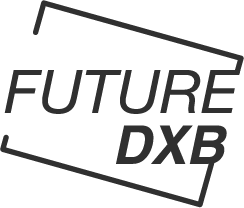Maximizing eCommerce Sales with Personalization

In the rapidly changing world of eCommerce, a powerful strategy has emerged as a game-changer: personalization. By customizing the online shopping experience to match individual preferences, interests, and behaviors, businesses can greatly improve customer engagement, satisfaction, and ultimately, sales. In this article, we will explore the impact of personalization in eCommerce and how it can accelerate revenue generation.
Understanding Personalization in eCommerce
Personalization in eCommerce involves providing tailored content, product recommendations, and marketing messages to individual shoppers based on their past interactions, demographics, and preferences. The goal is to create a more relevant and enjoyable shopping experience, similar to the personalized service one might receive in a physical store.
Harnessing Data for Personalization
Effective personalization relies on data. By analyzing customer data, such as purchase history, browsing behavior, and demographic information, online retailers can gain valuable insights into their customers’ preferences and habits. Advanced analytics tools and machine learning algorithms can then use this data to make accurate predictions and recommendations, delivering personalized experiences in real-time.
Tailored Product Recommendations
One of the most visible forms of personalization in eCommerce is the tailored product recommendation engine. By analyzing a customer’s browsing and purchase history, as well as the behavior of similar shoppers, algorithms can suggest products that match the individual’s interests and preferences. These recommendations not only help customers discover new products but also increase the likelihood of a purchase by offering relevant offerings at the right time.
Dynamic Website Personalization
In addition to product recommendations, eCommerce websites can dynamically personalize various elements of the user interface based on individual preferences. This can include personalized homepage banners, customized navigation menus, and targeted promotional messages. By displaying content and offers that resonate with visitors’ interests, businesses can enhance engagement and drive conversions.
Personalized Email Marketing
Email marketing remains a powerful tool for eCommerce, and personalization can enhance its effectiveness. By segmenting subscribers based on their preferences, purchase history, and engagement level, retailers can send targeted email campaigns tailored to each group’s interests and behavior. Whether it’s a personalized product recommendation or a customized promotional offer, these emails are more likely to resonate with recipients and drive action.
The Role of Artificial Intelligence
Artificial Intelligence (AI) plays a crucial role in eCommerce, reshaping the landscape and enhancing the shopping experience for consumers worldwide. AI algorithms analyze vast amounts of data and enable businesses to predict consumer behavior accurately. This predictive capability extends to various aspects of online retail, including the display of photorealistic 3D furniture. By leveraging AI, eCommerce platforms can offer immersive representations of furniture items, allowing customers to visualize them in their spaces with astonishing realism. This fusion of AI and photorealistic 3D furniture enhances the browsing experience and increases the likelihood of a purchase by providing consumers with a comprehensive understanding of the products they are interested in.
Benefits of Personalization for eCommerce
Personalization in eCommerce offers numerous benefits beyond just customization. By delivering tailored experiences to customers, businesses can unlock a range of advantages, including:
Enhanced Customer Engagement: Personalized shopping experiences create a deeper connection and loyalty to the brand.
Increased Conversion Rates: Personalization can boost conversion rates by presenting relevant products and offers to shoppers.
Improved Customer Satisfaction: Understanding and catering to customers’ preferences can lead to higher satisfaction and future purchases.
Higher Average Order Value: Personalized product recommendations can encourage customers to explore additional items, increasing revenue per transaction.
Reduced Cart Abandonment: Personalization can address individual preferences and concerns, reducing common issues such as irrelevant recommendations or complicated checkout processes that lead to cart abandonment.
In a competitive eCommerce market, personalization has become a key driver of sales and customer satisfaction. By utilizing data and AI, online retailers can provide customized shopping experiences that resonate with individual preferences and behaviors. From personalized product recommendations to dynamic website content, the possibilities for eCommerce personalization are vast and compelling. By embracing personalization, businesses can enhance engagement, drive conversions, and achieve revenue growth in the digital realm.

